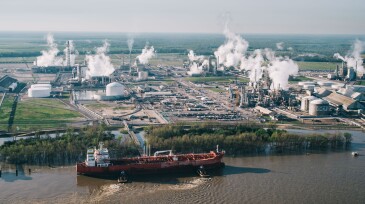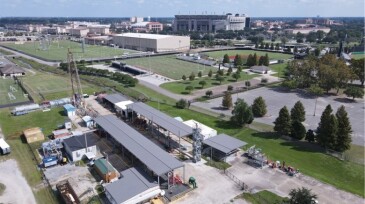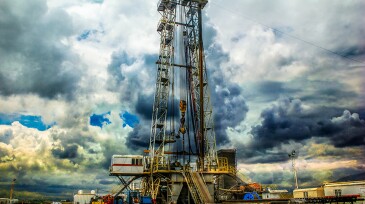Decarbonization
Block Energy announced the completion of its carbon capture and storage pilot study, confirming the viability of the field for permanent carbon storage.
DNV awarded the Abu Dhabi National Oil Company a storage certificate at the endorsement stage for its West Aquifer site.
A DNV report on decarbonization says the Middle East and North Africa region is expected to become the world’s largest hydrogen exporter by 2060 while maintaining a dominant position in global oil and gas markets.
-
A final investment decision is also expected by the end of the year for the company’s first low-carbon data center project.
-
The North Sea Transition Authority has updated its UKCS Well Applications and Consents Guidance to include the process for applying for consent to drill carbon-storage wells.
-
For more than a century, LSU has shaped petroleum engineering education, but few assets showcase its impact like the PERTT Lab. With six deep test wells and rare reservoir-depth gas-injection capabilities, the facility is helping drive breakthroughs in well control, carbon-dioxide injection, and next-generation energy technologies.
-
This study identifies critical knowledge gaps in wellbore integrity and underscores areas that require further investigation, providing insights into how wellbores must evolve to meet the technical demands of the energy transition.
-
This study illustrates the new capabilities, tailored for carbon-dioxide storage applications, of a modeling framework that provides a quantitative, risk-based assessment of the long-term integrity of legacy plugged and abandoned wells.
-
This paper addresses the difficulty in adjusting late-stage production in waterflooded reservoirs and proposes an integrated well-network-design mode for carbon-dioxide enhanced oil recovery and storage.
-
This work presents the development of fast predictive models and optimization methodologies to evaluate the potential of carbon-dioxide EOR and storage operations quickly in mature oil fields.
-
The authors of this paper apply a deep-learning model for multivariate forecasting of oil production and carbon-dioxide-sequestration efficiency across a range of water-alternating-gas scenarios using field data from six legacy carbon-dioxide enhanced-oil-recovery projects.
-
This paper assesses the technical feasibility of geological carbon storage in the operator’s Brazilian brownfields, focusing on mature oil fields and associated saline aquifers.
-
The latest corporate plan drops the amount the company says it will invest in low-carbon efforts by $10 billion from last year’s plan.
Page 1 of 57













